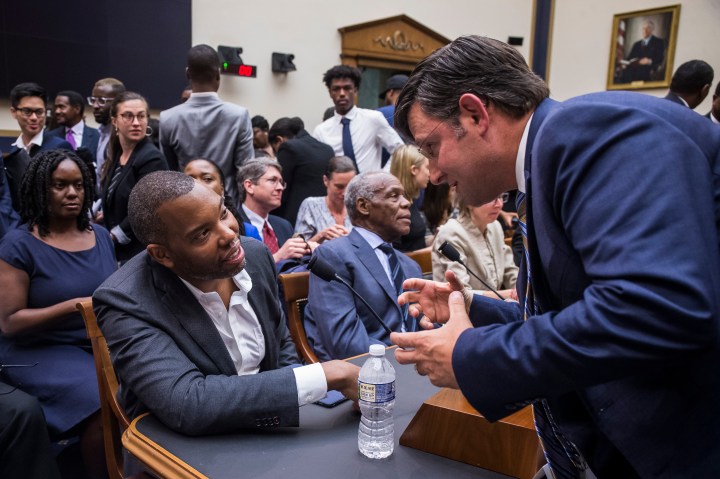
Who should get reparations? California’s task force wrestles with that question.
Who should get reparations? California’s task force wrestles with that question.

California is the first state in the country to create a task force exploring reparations for Black Americans. There’s no plan on the table yet, but reparations could include things like scholarships or housing assistance or direct cash payments. On Tuesday, the task force took an initial vote to restrict eligibility for compensation based on lineage.
The debate both inside and beyond the California task force is whether reparations should be limited to those who can prove they are direct descendants of enslaved people.
That approach leaves out a wide swath of Black Americans hurt by systemic racism, said Ron Daniels of the National African American Reparations Commission.
“Shirley Chisholm or Harry Belafonte, the banana boat man, they would all be excluded,” he said.
And Daniels said it may be difficult or impossible to prove someone’s ancestors were enslaved.
But supporters of more targeted reparations say that strategy avoids potential legal problems. California’s approach to reparations eligibility matters, said Rashawn Ray at the Brookings Institution.
“I think myself along with others expect for this particular commission to set the tone for what’s going to happen in other states,” he said.
The task force is due to release its final recommendations next year. Then it’s up to the California Legislature to decide whether to make them law.
There’s a lot happening in the world. Through it all, Marketplace is here for you.
You rely on Marketplace to break down the world’s events and tell you how it affects you in a fact-based, approachable way. We rely on your financial support to keep making that possible.
Your donation today powers the independent journalism that you rely on. For just $5/month, you can help sustain Marketplace so we can keep reporting on the things that matter to you.


















